One day in March 2001, Mangal Arun Shah—who is fondly known as Mangaltai (‘tai’ meaning elder sister in Marathi)—and her daughter Dimple, were out spreading awareness about HIV/AIDs among sex workers in Pandharpur town, Mahrashtra, when they were informed about two girls aged 2.5 and 1.5 who were left abandoned in a cow shed in a nearby village.
Upon hearing the news, she went to the village to inquire about the abandoned infants but she found that the two infants were sisters whose parents had died because of AIDS. Both girls were HIV positive and as a result their relatives had abandoned them in a cow shed, believing that they brought ‘shame’ to the family and were at risk of infecting the entire family.
Devastated by their plight, Mangaltai persuaded other villagers to look after these girls, but they refused to take them. At that moment, Mangaltai and Dimple decided to take the two infants home, and help them find an orphanage for children with HIV. At home, they gave the two girls a bath and food. When they set out to find an orphanage or a care home for them, they found none in Solapur district or even the entire state of Maharashtra.
“I was disheartened to see that no government hospital was ready to admit them. We also tried to contact NGOs for orphans, but they also refused to take them in knowing their HIV status. So, instead of waiting around, I decided to take care of these two little girls myself. I knew it was a tough decision to make, but I was determined to do my best. My family was a little reluctant in the beginning thinking ‘what would people say about providing a residential care home for children with HIV’ given the taboo around it. But my husband and children understood my zeal to work for them,” says Mangaltai, speaking to The Better India.
From two young girls, the 69-year-old Mangaltai, her daughter Dimple and grandchildren today manage a care home for 125 orphaned children with HIV. They are primarily between the ages of 4 and 21 from Palawi in Takli village near Pandharpur. Run under the aegis of Mangaltai’s non-profit called ‘Prabha Hira Pratishthan’, Palawi is a first-of-its-kind institution in Maharashtra.
Instead of letting these children face the staggering risks associated with their condition without any assistance and leaving them to die on the streets, Palawi opened its arms to them in the same year Mangaltai and Dimple found those two abandoned girls. After all, the care home’s name means ‘new leaves of a plant’ in Marathi.
“The care home was founded on the belief that all children have a fundamental right to a loving and fun-filled childhood with access to health, education, safe and stigma-free environment. Since we opened our doors to these children, they have been referred to Palawi by child-care institutions, orphanages, hospitals and other NGOs,” notes Dimple Ghadge.
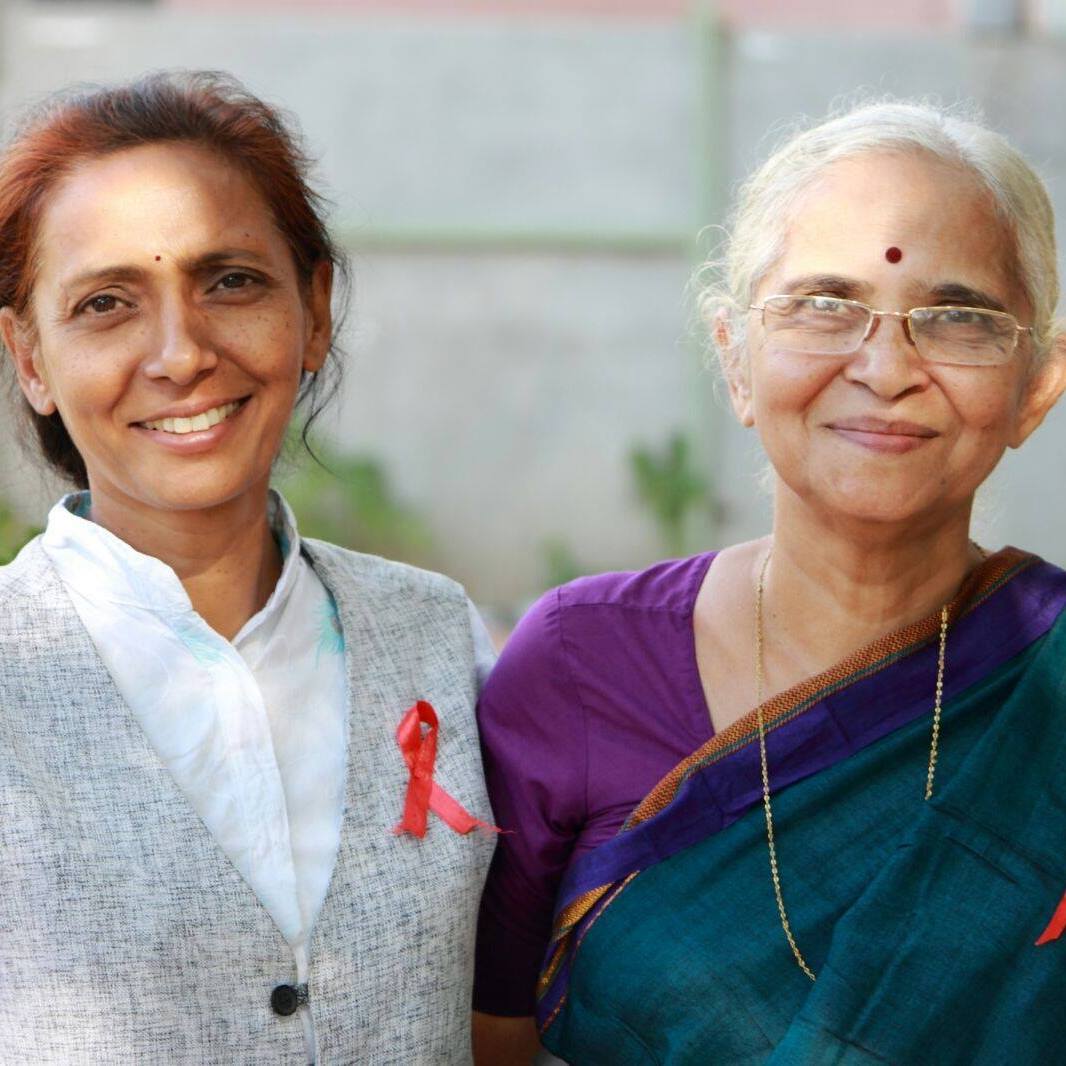
Spirit of Service
Born into a middle class family in Barshi, Solarpur district, where her parents were farmers, Mangaltai was only 16 when she got married. It was also the same age when she got into social work, influenced by the likes of Swami Vivekananda, Baba Amte and Mother Teresa. She had read books by them as a young girl thanks to her mother, who encouraged knowledge at home.
When Dimple turned 10, she would also take her to volunteer at different orphanages, help leprosy patients, destitute women and sex workers in Solarpur district. Mangaltai ran a soup kitchen for destitute women and served as a nurse to leprosy and HIV positive patients admitted at the government hospital. She witnessed the cruelty people living with HIV/AIDs (PLWHA) were enduring while volunteering at a government hospital in Pandharpur.
“People were afraid to ask questions on the issue due to the stigma attached to this deadly virus. I knew they were suffering and at the same time they were extremely afraid to get tested. Mangaltai, adding, “I had taken up the responsibility with my daughter of sharing awareness on HIV/AIDS among female sex workers and to small villages located around Solapur district.”
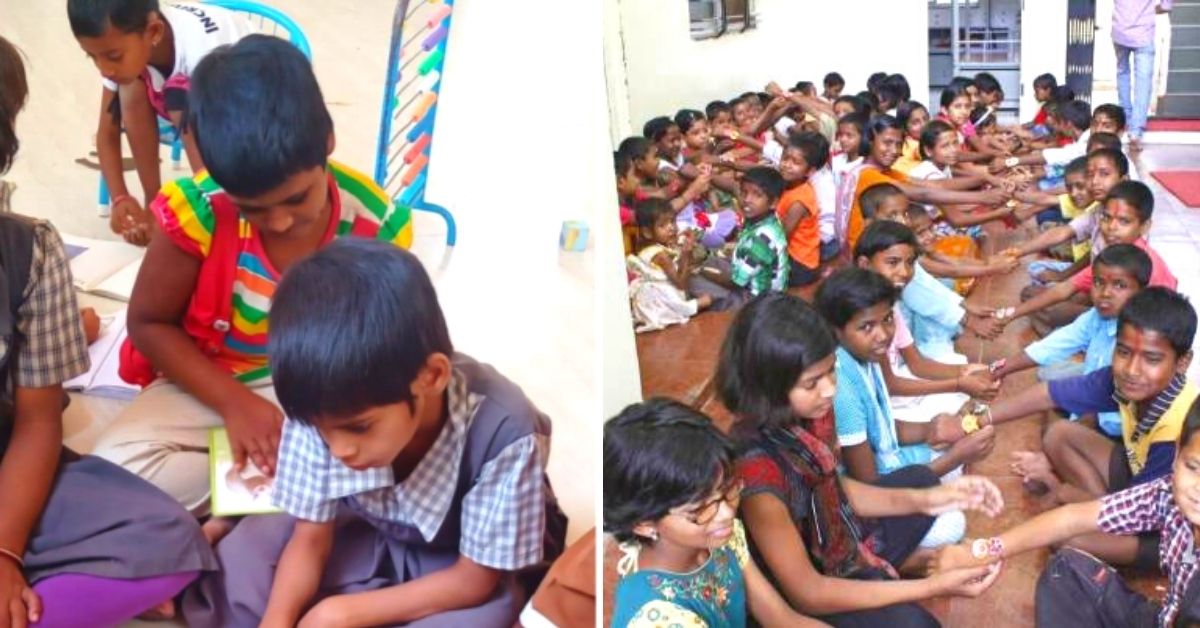
Building a Safe Space
When Mangaltai set out to build a care home, she received no support from villagers in Takli, In fact, some even persuaded her to leave the two infants to die near a forest.
“None of the villagers came to provide support. There were protests too at the beginning. No place was available for us to rent to start the care home. It was like the village community wanted to outcast us for providing a safe place for these children. Some people even persuaded me to abandon these girls near the forest and leave them to die because ‘sooner or later they are going to die anyway’. This attitude, however, did not come as a shock to me. I knew what they were thinking and their fears. It was my duty to bring awareness among common people about this disease and shatter certain myths surrounding them. Fortunately, over time, things started to change for the better and local people came forward to help. Government hospitals also provided medical supplies to us,” she recalls.
Having said that, Mangaltai’s memories of the tremendous and real challenges in building remain fresh two decades later. There were issues of social acceptance, lack of financial resources, unavailability of a safe and secure place, medical supplies, etc.
“We first rented a small space from 2001 to 2004 to begin the work of our non-profit organisation, Prabha Hira Pratishtha. The accommodation was initially sufficient for about eight children only, but their numbers were increasing considerably every year. Thankfully, one day Praveen Davane, the principal of a local college, visited our organisation. Mr Davane was really moved by the mission and vision of Prabha Hira Pratishthan and contacted us about our endeavor. He even wrote an article ‘Thembatale Abhal’ (meaning water droplets in the sky) in a local Marathi publication. The article helped us generate some funds, which were eventually used to buy a plot measuring about 3,750 sq ft,” says Mangaltai.
Going further, Dimple Ghadge and a small team she assembled presented street plays at various locations in Maharashtra to generate funds for constructing Palawi.
“These funds were used for the construction of the building, etc. Many local donors also came forward generously to build Palawi. It took over six years for us to complete the construction work, and the total cost of building Palawi was about Rs 1 crore,” says Dimple.
Education, Health and Nutrition
Dynamandir is the school at Palawi where children get an education. Its construction began in 2007 and was completed nearly six years later. Prior to that, children at Palawai used to attend a local government primary school in Pandharpur.
“Today, Dynamandir has six classrooms for 22 primary and 90 secondary school students, six full-time teachers and four non-teaching staff. Due to a shortage of funds we can’t provide uniforms to children every year. The lack of funds also restricts us from increasing the number of Mathematics, Science, English and Computer Science teachers. We can significantly enhance our education facility by increasing the number of classrooms from six to 12. Also, we need a room for the principal and a staff room too for teachers,” she says.
In addition, they also require computers for e-learning, a yoga hall and to hire someone equipped to teach it, a sports ground for children to play different sports and two more councilors to cater to their emotional needs.
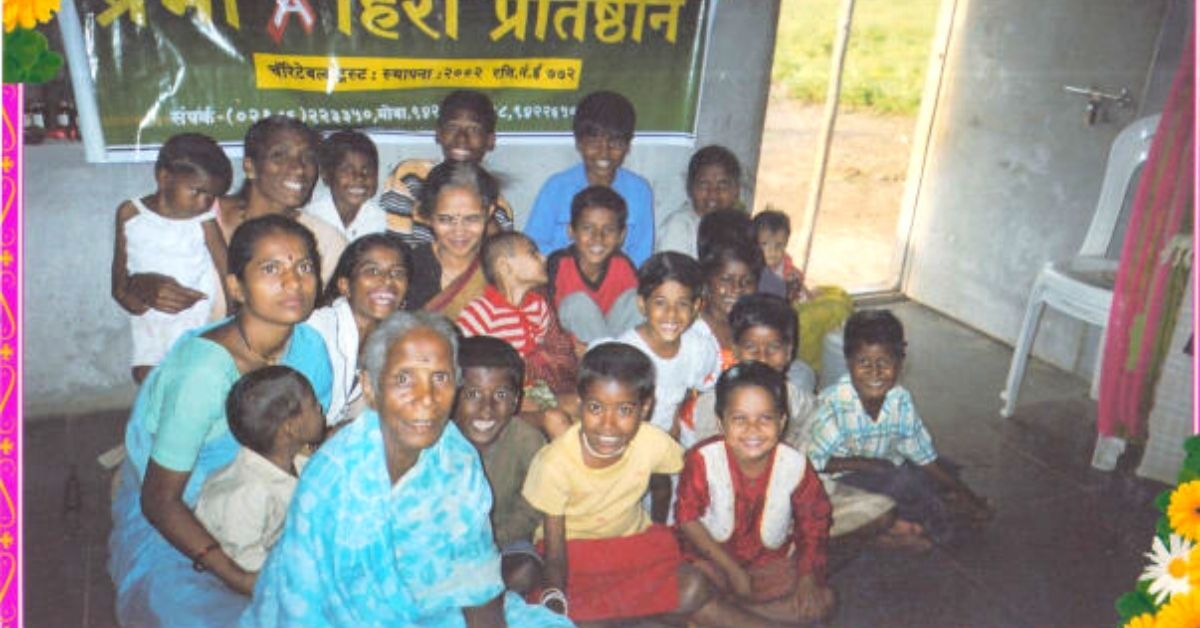
Catering to their medical needs, Palawi presently has a unit manned by a qualified in-house doctor, two nurses, three caregivers and two councillors.
“Our medical unit is sufficient to accommodate five to seven children at a time. We need to expand as the numbers of children with HIV are gradually increasing. We require two more rooms with attached bathrooms and toilets. Our unit should be big enough to accommodate 12-15 children,” adds Dimple.
On the subject of nutrition, it has been estimated that over 90% of children with HIV/AIDS will experience delayed growth. The major contributors are poor socio-economic status, poor nutritional intake, malabsorption and the disease itself.
“In severely malnourished children with HIV infection, low CD4+ levels are associated mainly with HIV infection 1. The availability of antiretroviral therapy (ART) has improved the survival of children with HIV and converted a rapidly fatal disease to a chronic disease. In such a scenario, there is going to be an increasing challenge of managing various aspects of chronic care in children. Nutrition is one of the most important ones. Since the inception of Palawi, children’s good health and well-being has been our top priority. They all are served nutritional foods, whole grain, seasonal fruits, milk, etc.,” explains Mangaltai.
Children residing in Palawi also perform theater plays in various cities in Maharashtra every year so that the children connect with the outside world.
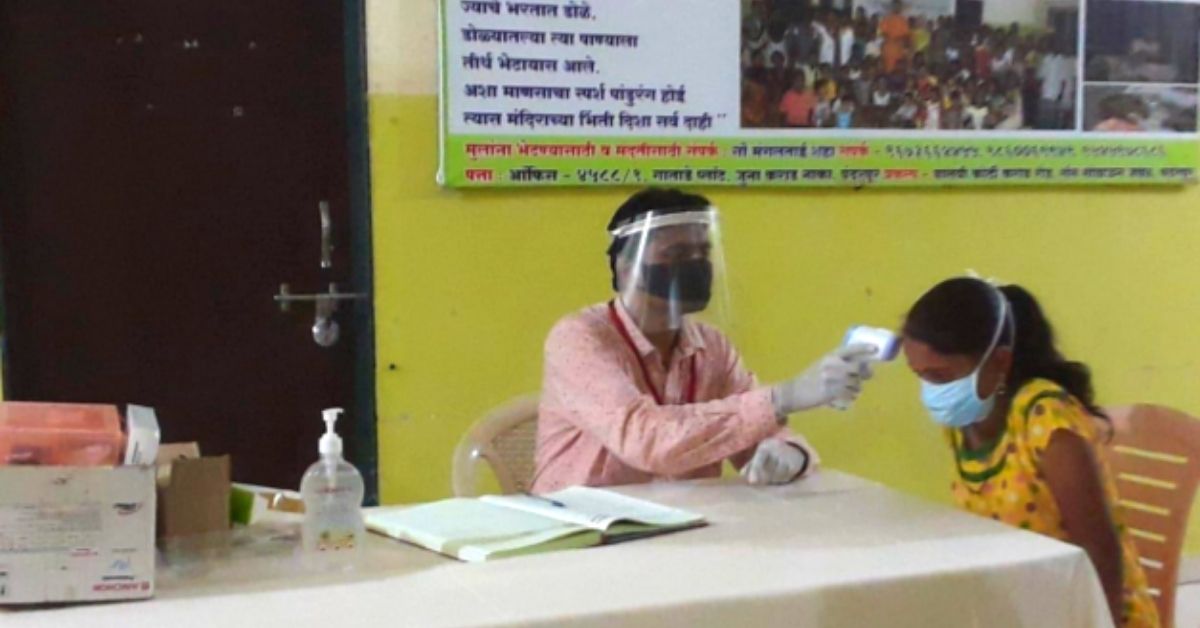
‘I Am Their Mother’
The responsibility of caring for children with HIV comes with not just a great deal of responsibility, but also sadness, tragedy and disappointment. Many children, whose condition rapidly deteriorates, have died in Mangaltai’s laps. “It has been terrible for each one of us at the care home when any child dies due to AIDS-related illnesses. I am a mother. I have to take care for all these children of mine who are ill and need my care,” says Mangaltai.
However, she strives to bring cheer and happiness in the lives of the children who continue to battle the disease every single day.
“There was not a single moment when I doubted our work. We implement our awareness campaign at the grassroot level, serving the needs of the HIV/AIDS community directly or indirectly. The intervention in the area related to orphan children living with HIV/AIDS is absolutely important as these children are most vulnerable and marginalized,” she says.
Without the necessary care or safe space, they can easily slip into dark circle of sexual exploitation, drug abuse, exploitative child labour, psycho-social distress, reduced access to health service, nutrition, shelter, withdrawal from school and abject poverty living life on streets.
It’s worse for young girls, who are often raped or physically abused by their distant relatives. Before coming to Palawi, many of them were tortured and forced to do household work after their parents died and were refused admission into school.
However, once they arrive at Palawi, Dimple says, “They are no longer ashamed of themselves. Continuous counselling and support from the organisation has definitely changed their lives. It is great to see our girls confident, healthy, smart and educated. Today, they are working as teachers, care givers, fashion designers, etc. In the past four years seven adult children of Palawi began working in garment factories, mobile repair shops, dairy farming, etc. It is indeed a proud moment for us.”
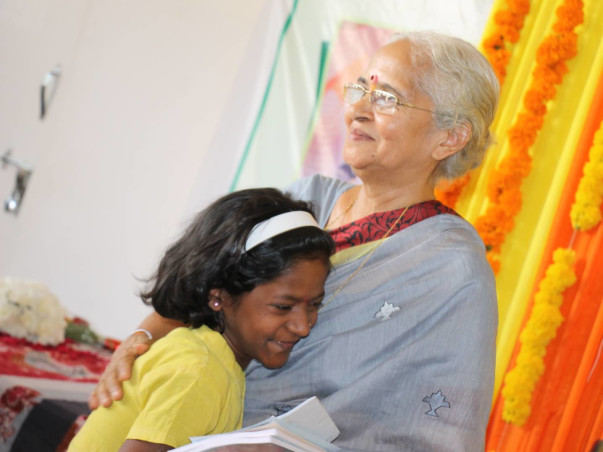
‘Each Child Deserves Safety, Happiness’
As Mangaltai expands on her own philosophy, she asserts, “Each child deserves to be happy, safe, healthy, and educated. At Palawi, we believe in empowering each child in our care home.”
She adds, “One of the ways to empower someone is to be generous in giving praise and encouragement instead of criticism. Our work is empowering children in a discrimination and stigma free environment, and giving them all the confidence in the world to stand tall. By praising and encouraging the child, we help them to accomplish great things and add value to the same society which shunned them.”
Before coming to Palawi, she claims, 90% of the children were either school dropouts or were not able to attend the school because of their health conditions. “Orphans suffering from HIV/AIDS usually lack parental care or financial resources for education and well-being. Most of the children in our care home come from low income households,” she adds.
Here at Palawi, however, each child is encouraged from a very young age to be skilled in their area of interest. “We guide them to become agents of change. In fact, some of the adult residents of Palawi have been helping Prabha Hira Pratishthan in other special projects. They understand the true meaning of ‘giving back to society’. Today, we see children with HIV not only going to school and receiving a formal education but also scoring excellent marks in their exams. When we see our young boys and girls earning their own livelihood and making informed decisions about their lives, it gives us immense pleasure,” says Mangaltai.
Having said that, Palawi needs help given the impact of the COVID-19 pandemic and the additional expenses Mangaltai and her team had to incur. Many of their donors have backed out due to the effects of the lockdown. The daily expense at Palawi for the food, medical care, housing and education for 125 children and staff salaries is Rs 15,000. A lot of lives depend on the successful operation of Palawi and the support of people will ensure that Mangalatai continues her inspiring work to provide hope and love to the 110 children with HIV at Palawi.
“After all, the vision of Palawi is to create a just and equitable society for children with HIV and the HIV-affected population at large,” she concludes.
You can donate on their Milaap page here.
(Edited by Yoshita Rao)
No comments:
Post a Comment